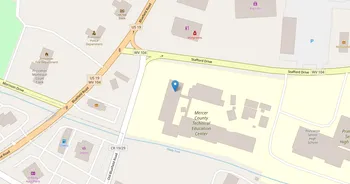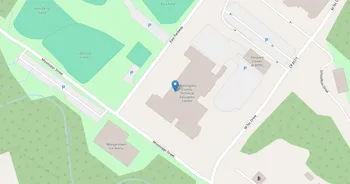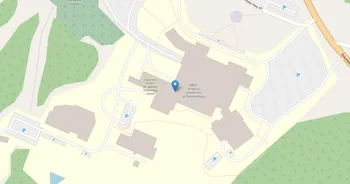Marshall University : Overview, Courses, Scholarships & Rankings
About Marshall University
We Are Marshall still echoes across a campus known for resilience and community. Marshall University pairs hands-on learning in the sciences, health fields, engineering, business, education, and the arts with small-class attention and faculty who stick with students. Libraries, studios, well equipped labs, simulation spaces, and a busy recreation center anchor day-to-day life, while tutoring, advising, counseling, and career coaching keep students supported from the first semester on.
Student life is lively and welcoming, with service groups, cultural orgs, Greek life, intramurals, and plenty of music and coffee just off campus. The riverfront and nearby hills invite hikes between classes. Campus culture carries strong Herd pride and a respectful remembrance around the memorial fountain. Career prep has a practical tilt, with internships and clinicals across the region and alumni who pick up the phone. Huntington's walkable downtown offers real work experience and local flavor. Notable alumni include Randy Moss and Chad Pennington.
Key Institutional Details
Contact & Profile
Academic & Institutional
Academic Programs & Fields of Study
Marshall University offers 100 degree programs across 24 major academic fields, graduating approximately 2,609 students annually. The most popular fields by graduate volume are Health (24 programs, 831 graduates), Education (17 programs, 409 graduates), Business (10 programs, 339 graduates), Liberal Arts (3 programs, 161 graduates) and Psychology (3 programs, 149 graduates). Explore program details, award levels, and graduate demographics below.
Health (24 programs, 831 graduates)
Healthcare Professions, Medical Sciences and Clinical Practice
| Program Name | Graduates | Gender Distribution | Award Levels | CIP Code |
|---|---|---|---|---|
| Registered Nursing | 247 |
|
Associate's
Bachelor's
Post-Master's
|
51.3801 |
| Health and Medical Preparatory Programs | 113 |
|
Bachelor's
|
51.1199 |
| Pharmacy | 68 |
|
Postbac Cert.
Doctorate (P)
|
51.2001 |
| Medicine | 59 |
|
Doctorate (P)
|
51.1201 |
| Dietetics | 44 |
|
Bachelor's
Master's
|
51.3101 |
| Family Practice Nursing | 31 |
|
Master's
Post-Master's
|
51.3805 |
| Nursing Administration | 30 |
|
Post-Master's
Doctorate (P)
|
51.3802 |
| Physical Therapy | 29 |
|
Doctorate (P)
|
51.2308 |
| Audiology and Speech-Language Pathology | 28 |
|
Master's
|
51.0204 |
| Athletic Training | 23 |
|
Bachelor's
Master's
|
51.0913 |
| Radiologic Technology | 22 |
|
Bachelor's
|
51.0911 |
| Physician Assistant | 21 |
|
Master's
|
51.0912 |
| Speech-Language Pathology | 18 |
|
Bachelor's
|
51.0203 |
| Health Administration and Management | 18 |
|
Master's
|
51.0701 |
| Medical Informatics | 18 |
|
Postbac Cert.
Master's
|
51.2706 |
| Mental Health Counseling | 13 |
|
Postbac Cert.
|
51.1508 |
| Clinical Laboratory Science and Medical Technology | 11 |
|
Bachelor's
|
51.1005 |
| Respiratory Care Therapy | 10 |
|
Bachelor's
|
51.0908 |
| Public Health | 8 |
|
Master's
|
51.2201 |
| Rehabilitation Science | 6 |
|
Bachelor's
Master's
|
51.2314 |
| Clinical Laboratory Technician | 5 |
|
Associate's
|
51.1004 |
| Pharmaceutical Sciences | 4 |
|
Master's
|
51.2010 |
| Environmental Health | 4 |
|
Master's
|
51.2202 |
| Nursing Practice | 1 |
|
Doctorate (P)
|
51.3818 |
Education (17 programs, 409 graduates)
Educational Sciences, Teaching Methods and Pedagogy
Business (10 programs, 339 graduates)
Business Administration, Marketing and Entrepreneurship
| Program Name | Graduates | Gender Distribution | Award Levels | CIP Code |
|---|---|---|---|---|
| Business Administration | 251 |
|
Bachelor's
Master's
Doctorate (R)
|
52.0101 |
| Business and Management Services | 33 |
|
Bachelor's
|
52.9999 |
| Accounting | 31 |
|
Bachelor's
|
52.0301 |
| Labor and Industrial Relations | 9 |
|
Master's
|
52.1002 |
| Management Sciences and Quantitative Methods | 7 |
|
Master's
|
52.1399 |
| Business Administration and Management | 3 |
|
Bachelor's
|
52.0201 |
| Marketing Management | 2 |
|
Bachelor's
|
52.1401 |
| Nonprofit and Organizational Management | 1 |
|
Postbac Cert.
|
52.0206 |
| International Business and Trade | 1 |
|
Bachelor's
|
52.1101 |
| Management Information Systems | 1 |
|
Bachelor's
|
52.1201 |
Liberal Arts (3 programs, 161 graduates)
Liberal Arts Education, General Studies and Humanities
| Program Name | Graduates | Gender Distribution | Award Levels | CIP Code |
|---|---|---|---|---|
| General Studies | 148 |
|
Bachelor's
|
24.0102 |
| Humanities Studies | 8 |
|
Bachelor's
Master's
|
24.0103 |
| Liberal Arts and Sciences | 5 |
|
Other Award
|
24.0101 |
Psychology (3 programs, 149 graduates)
Psychological Sciences, Mental Health and Behavioral Studies
| Program Name | Graduates | Gender Distribution | Award Levels | CIP Code |
|---|---|---|---|---|
| General Psychology | 118 |
|
Bachelor's
Master's
|
42.0101 |
| Clinical Psychology | 16 |
|
Post-Master's
Doctorate (P)
|
42.2801 |
| School Psychology | 15 |
|
Post-Master's
|
42.2805 |
Biological Sciences (2 programs, 94 graduates)
Life Sciences, Biotechnology and Biomedical Research
| Program Name | Graduates | Gender Distribution | Award Levels | CIP Code |
|---|---|---|---|---|
| Biology and Biological Sciences | 82 |
|
Bachelor's
Master's
|
26.0101 |
| Biomedical Sciences | 12 |
|
Master's
Doctorate (R)
|
26.0102 |
Public Services (2 programs, 73 graduates)
Public Administration, Social Work and Community Services
| Program Name | Graduates | Gender Distribution | Award Levels | CIP Code |
|---|---|---|---|---|
| Social Work | 61 |
|
Bachelor's
Postbac Cert.
Master's
|
44.0701 |
| Public Policy Analysis | 12 |
|
Master's
|
44.0501 |
Engineering (5 programs, 69 graduates)
Engineering Sciences and Applied Technology Solutions
| Program Name | Graduates | Gender Distribution | Award Levels | CIP Code |
|---|---|---|---|---|
| Civil Engineering | 27 |
|
Bachelor's
|
14.0801 |
| Mechanical Engineering | 24 |
|
Bachelor's
Master's
|
14.1901 |
| Electrical and Electronics Engineering | 7 |
|
Bachelor's
Master's
|
14.1001 |
| General Engineering | 6 |
|
Master's
|
14.0101 |
| Biomedical Engineering | 5 |
|
Bachelor's
|
14.0501 |
Arts (3 programs, 63 graduates)
Fine Arts, Design Studies and Creative Performance
| Program Name | Graduates | Gender Distribution | Award Levels | CIP Code |
|---|---|---|---|---|
| Art Studies | 29 |
|
Bachelor's
|
50.0701 |
| Visual and Performing Arts | 28 |
|
Bachelor's
|
50.0101 |
| Music | 6 |
|
Master's
|
50.0901 |
Kinesiology (3 programs, 62 graduates)
Exercise Science, Sports Medicine and Physical Recreation
| Program Name | Graduates | Gender Distribution | Award Levels | CIP Code |
|---|---|---|---|---|
| Exercise Science and Kinesiology | 37 |
|
Bachelor's
Master's
|
31.0505 |
| Sport and Fitness Management | 18 |
|
Bachelor's
|
31.0504 |
| Parks and Recreation Management | 7 |
|
Bachelor's
|
31.0301 |
Admission Requirements & Test Scores
Comprehensive overview of admission criteria, standardized test score ranges, and application requirements for prospective students at Marshall University.
Application Requirements
Data based on IPEDS for 2022-2023 academic year. Test score ranges represent the middle 50% of admitted students (25th-75th percentile). Requirements may vary by program.
Tuition, Fees & Estimated Costs
Overview of tuition rates, housing, and other annual education expenses for undergraduate and graduate students
Financial Aid & Student Support
Summary of scholarships, grants, student loans, and financial aid statistics for undergraduate students
Student Success Metrics
Graduation rates and post-graduation earnings to help assess student outcomes and long-term value of education.
Loan Burden & Repayment Outcomes
Breakdown of loan repayment rates and student debt levels by income and dependency status.
Frequently Asked Questions
Find answers to the most common questions about Marshall University
How much does it cost to attend Marshall University?
The annual tuition at Marshall University is $8,942 for in-state students and $20,294 for out-of-state students. When including room and board, books, and other expenses, the total estimated cost is approximately $25,294 for in-state students and $36,646 for out-of-state students. Additional costs include room and board $12,852 (on) / $11,274 (off) and books and supplies $1,100.
Data based on IPEDS program completions for 2022-2023 academic year. Tuition and cost estimates are approximate and may not include all fees, personal expenses, or transportation costs.
What academic programs and degree levels does Marshall University offer?
Marshall University offers 100 academic programs across 24 major fields of study, with available degree levels: Associate's, Bachelor's, Postbac Cert., Master's, Post-Master's, Doctorate (Research), Doctorate (Professional), Other Award.
Most popular program areas include:
- Healthcare Professions, Medical Sciences and Clinical Practice (24 programs)
- Educational Sciences, Teaching Methods and Pedagogy (17 programs)
- Business Administration, Marketing and Entrepreneurship (10 programs)
- Liberal Arts Education, General Studies and Humanities (3 programs)
- Psychological Sciences, Mental Health and Behavioral Studies (3 programs)
Data based on IPEDS program completions for 2023-2024 academic year. Numbers reflect programs where students graduated, not all offered programs.
What is the acceptance rate for Marshall University?
Marshall University has an 96.5% acceptance rate and a 27.7% yield rate, making it moderately selective.
Admission statistics breakdown:
- Total applicants: 6,499
- Students admitted: 6,269
- Students enrolled: 1,739
Data based on IPEDS for 2022-2023 academic year. Admission statistics may vary by program and application cycle.
What financial aid and scholarships are available at Marshall University?
Marshall University provides financial aid to 19% of first-time, full-time students, with average grants of $12,024 and average loans of $6,171.
Average financial aid amounts by type:
- Pell grants: $5,994
- State/Local grants: $5,338
- Institutional grants: $6,081
- Federal loans: $5,140
The university supports 1,463 students with grants and 766 students with loans annually.
Data based on IPEDS for 2022-2023 academic year. Financial aid amounts and percentages may vary by program, enrollment status, and individual circumstances.
What is the average salary for Marshall University graduates?
Marshall University graduates earn a median salary of $39,561 after 6 years and $46,354 after 10 years.
The salary range 10 years after graduation spans from $29,123 (25th percentile) to $68,397 (75th percentile), with top earners reaching $70,800 (90th percentile).
Data based on IPEDS for 2022-2023 academic year. Salary data reflects graduates who received federal financial aid (approximately 60% of all graduates). Actual earnings may vary significantly based on program, location, and individual circumstances.
Related Universities




Found something useful? Help others discover it too! Share with friends, on social media, or save for later - every share helps someone find the information they need.